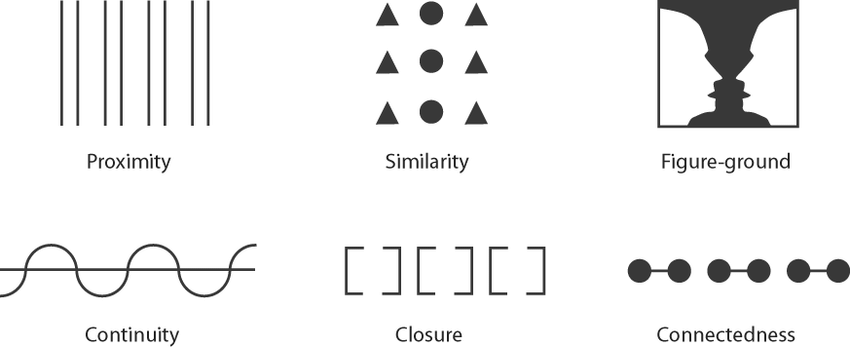Dalia Savy
Sadiyya Holsey
Jillian Holbrook
AP Psychology 🧠
334 resourcesSee Units
The Historical Progression of Psychology
There are many theoretical approaches in psychology designed to explain certain behaviors.
Some of the earliest approaches to explaining behavior in psychology include structuralism and functionalism.
Structuralism
Wilhelm Wundt combined physiology and philosophy to create psychology and established the first psychology lab in Germany (1879). He believed in introspection and structuralism.
Structuralism says that structure is more important than function. Structuralists believed that the mind must be broken into elements to understand the brain and its functions. With the use of introspection 🤔 (looking inward), people try to understand the thoughts or emotions they are experiencing at the time.
For structuralism to work, the subject would have to be very intelligent and verbal in order to describe their sensations, images, and feelings in certain moments. Also, introspection proved unreliable since the results varied from person to person.
As a result, the impact of introspection waned, as did structuralism.
Functionalism
Functionalism came after structuralism and was created to understand how the conscious mind is related to behavior. Functionalists, such as William James, wanted to know how the mind affected what people did.
Early Behaviorism
Early Behaviorism was the study of observable events. This theory shifted psychology from a study of the unconscious and conscious mind to a more science-based study based on observable events.
John Watson was a behavioral psychologist who studied observable behaviors and led the Little Albert experiment, where he trained an 11-month-old boy to fear a white rat. 🐁 The boy was not initially afraid of the rat, but
when the white rat was paired with a loud sound, the boy would show signs of distress. Eventually, the boy began to cry when just seeing the white rat without the sound. Watson believed that observable events are the only events that can be proven true, unlike studying the conscious, where results are not verifiable.
Gestalt Psychology
Gestalt psychology says that the whole is different than the sum of its parts. Gestalt psychology looks at the mind and behavior as a whole. It suggests that human minds do not focus on small components. Instead, humans see the greater whole. Examples of Gestalt principles are below and discussed in further detail in Unit 3.

Image courtesy of ResearchGate.
Psychological Approaches
The psychoanalytic/Psychodynamic approach focuses on the study of the unconscious mind. It states that behavior is determined by past experiences.
Sigmund Freud is the key individual that used this approach, and he built his theories based on it.
The humanistic approach believes that humans have free will and the ability to grow.
All individuals are striving to reach self-actualization and their greatest potential with this approach. 🌱
The evolutionary approach uses evolutionary biology to explain human behavior. Also, it looks at how natural selection due to variable traits promotes the survival of genes. An evolutionary psychologist may study how anger could be a gene inherited from our ancestors.
The biological perspective states that behavior is based on physical processes, such as those relating to the brain, hormones, and other chemicals.
The cognitive approach states that thought processes impact the way people behave. A cognitive psychologist may study how an emotion, such as fear, affects one’s thinking.
The biopsychosocial perspective acknowledges the person as a whole and tries to look at all of the patient's circumstances. It looks at biological, psychological, and social factors to understand a person’s behavior.
The sociocultural approach studies how thinking and behavior vary across cultures and situations. A sociocultural psychologist may study how expressions of sadness vary across cultures.
Subfields of Psychology
Biological psychology states that physical processes shape behavior. For example, a biological psychologist might say that anger is due to a certain hormonal balance in the brain. 😡
Clinical psychology is a section of psychology focused on assessing and treating mental, emotional, and behavioral disorders.
Cognitive psychology studies the mental processes associated with thinking, knowing, and communicating. 🤔
Counseling psychology focuses on personal issues that are not classified as mental disorders. These types of therapists help people cope with challenges and crises in life. For example, they can help a student with social or academic struggles. They could even help an individual with marital issues.
Developmental psychology studies social, physical, and cognitive changes throughout the lifespan. So, they study from “womb to tomb.” 👶
Educational psychology is the study of how psychological processes can impact and improve learning and teaching. 👩🏽🏫
Experimental psychology uses the experimental method to examine relationships between behavior and the mind.
Industrial-organizational psychology studies the relationships between work and people in order to help companies increase productivity, boost morale, and select and train employees.
Personality psychology is the study of how personality affects the way people think and behave.
Psychometric psychology focuses on psychological measurement and is concerned with the design of psychological examinations.
Social psychology studies how humans are influenced by one another and how we relate and think about each other. 👫
Positive psychology focuses on making human existence more fulfilling, rather than focusing on the treatment of mental illness. It promotes strengths and virtues to improve the lives of people and communities.
💫
🎥Watch: AP Psychology - Approaches
Browse Study Guides By Unit
🔎Unit 1 – Scientific Foundations of Psychology
🧠Unit 2 – Biological Basis of Behavior
👀Unit 3 – Sensation & Perception
📚Unit 4 – Learning
🤔Unit 5 – Cognitive Psychology
👶🏽Unit 6 – Developmental Psychology
🤪Unit 7 – Motivation, Emotion, & Personality
🛋Unit 8 – Clinical Psychology
👫Unit 9 – Social Psychology
🗓️Previous Exam Prep
📚Study Tools
🤔Exam Skills

Fiveable
Resources
© 2025 Fiveable Inc. All rights reserved.